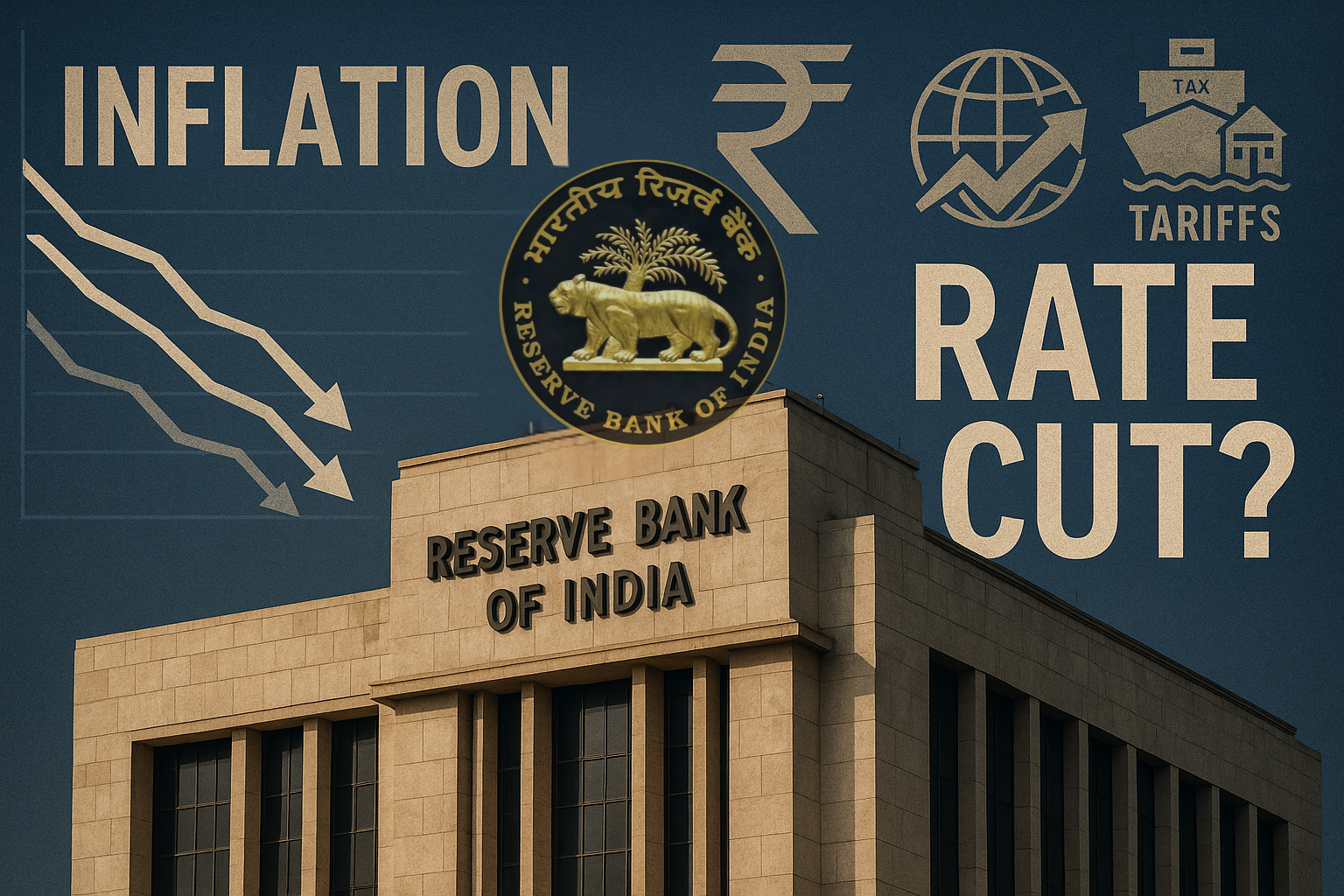Easing inflation trends are creating headroom for a potential interest rate cut, but the Reserve Bank of India (RBI) may still refrain from taking such a step in the near term. Analysts argue that despite inflation moderating below the central bank’s target, concerns over global tariff shocks, currency volatility, and fiscal pressures are likely to keep the RBI cautious.
The development reflects the RBI’s preference for policy stability over short-term stimulus, prioritizing financial resilience amid global uncertainty.
Core Development
According to market experts:
Inflation Trends: Retail inflation remains subdued, and wholesale inflation has stayed within manageable levels.
Room for Easing: The moderation technically provides space for a rate cut to spur credit and growth.
RBI’s Stance: Policymakers are expected to maintain a status quo on rates to avoid undermining stability.
The RBI is likely to focus on liquidity management and currency stability rather than outright rate reductions in its upcoming policy reviews.
Key Drivers Behind RBI’s Caution
Tariff Headwinds: The U.S. tariff shock adds downside risks to exports and growth.
Currency Volatility: Protecting the rupee from excessive fluctuations remains critical.
Fiscal Concerns: Rising deficit levels could limit monetary space for aggressive easing.
Stakeholder Impact
Borrowers: No immediate relief on loan EMIs despite easing inflation.
Banks: Maintain steady interest spreads and credit discipline.
Government: Must rely more on fiscal tools and structural reforms to support growth.
Industry & Policy Reactions
Economists agree that while inflationary conditions offer a window for rate cuts, the RBI is likely to adopt a wait-and-watch approach until greater clarity emerges on global trade tensions and fiscal consolidation. Some argue that any premature easing could risk capital outflows and exchange-rate instability.
Challenges Ahead
External Pressures: Global economic slowdown and tariff disruptions.
Domestic Balance: Need to maintain growth momentum without spurring inflation.
Investor Confidence: A conservative stance may help safeguard foreign inflows.
Strategic Outlook
The RBI’s caution underscores its long-term focus on financial stability and inflation credibility. While inflation trends offer comfort, the central bank is signaling that monetary policy will remain data-driven and globally aligned, rather than reacting to short-term fluctuations.
Why This Matters
Policy signals from the RBI shape not only credit conditions and borrowing costs but also investor sentiment. The central bank’s restraint, despite favorable inflation data, highlights the complexities of managing India’s economy in a volatile global environment.












